When I first started taking the IELTS, I was also confused. Let’s take a look at how the veterans prepare for the IELTS. Their practical experience will definitely inspire you!
Generally speaking, language tests like IELTS and TOEFL are not that difficult compared to GRE and GMAT, but it is undeniable that they also test certain test-taking skills.The right way to prepare for the exam, often with half the effort and twice the results, and may gain little. So when you are just starting to prepare for the IELTS, I highly recommend going toStandard IELTS course admissionLearn some introductory knowledge and skills in various subjects, and spend some time to lay a solid foundationCorrect exam preparation concept, avoid some unnecessary detours, and your exam preparation efficiency will be greatly improved!
0. Preparation
First, you need to understand the IELTS test precautions and have a clear idea of what to expect. You can make a test review plan for yourself before you start preparing for the test, such as: target score, single subject goals, strengths and weaknesses analysis, time arrangement plan, etc.
Getting started with IELTS is a time-consuming and laborious job of collecting information. Although it is self-study, it cannot be too rigid. Some time investment in resource collection is still necessary. Here I recommend a very suitable training camp course for getting started with IELTS. It is very conscientious and has IELTSPublic classes on all-subject literacy, post-test analysis of simulated computer-based exams, exclusive customized exam preparation plans, etc., can help you learn some basic science and assess your current level.The key point is that you can ask questions later, which can help you avoid detours and improve your learning efficiency. If you have no idea how to prepare for the exam and want to save time, you may want to click on the link and try it.
After learning the course and figuring out the introductory exam preparation knowledge, the training and improvement of each subject will be more handy. The following are the materials used and my preparation methods:
first,Materials used
1. Jian Ya 4-17
2. Listening Corpus
3. Essay examples and materials
4. IELTS Full Score APP
5. Liulishuo—IELTS APP
These are all the materials I used during the entire duck slaughtering process! (I personally think that paper books are more convenient and easier to use than electronic books)
1. Listening
There is no listening test in my college entrance examination, and I haven't practiced it much before, so my listening skills are actually quite average. My method is to use Cambridge and ACA real test papers + listening corpus.
1. Practice a set of Cambridge and IELTS test papers every day
I didn't turn on the speed or anything. I just listened to section 1-4 like taking an exam every day. I listened to the wrong questions again and compared them with the original text. I categorized the reasons for the mistakes and wrote them down in a notebook.
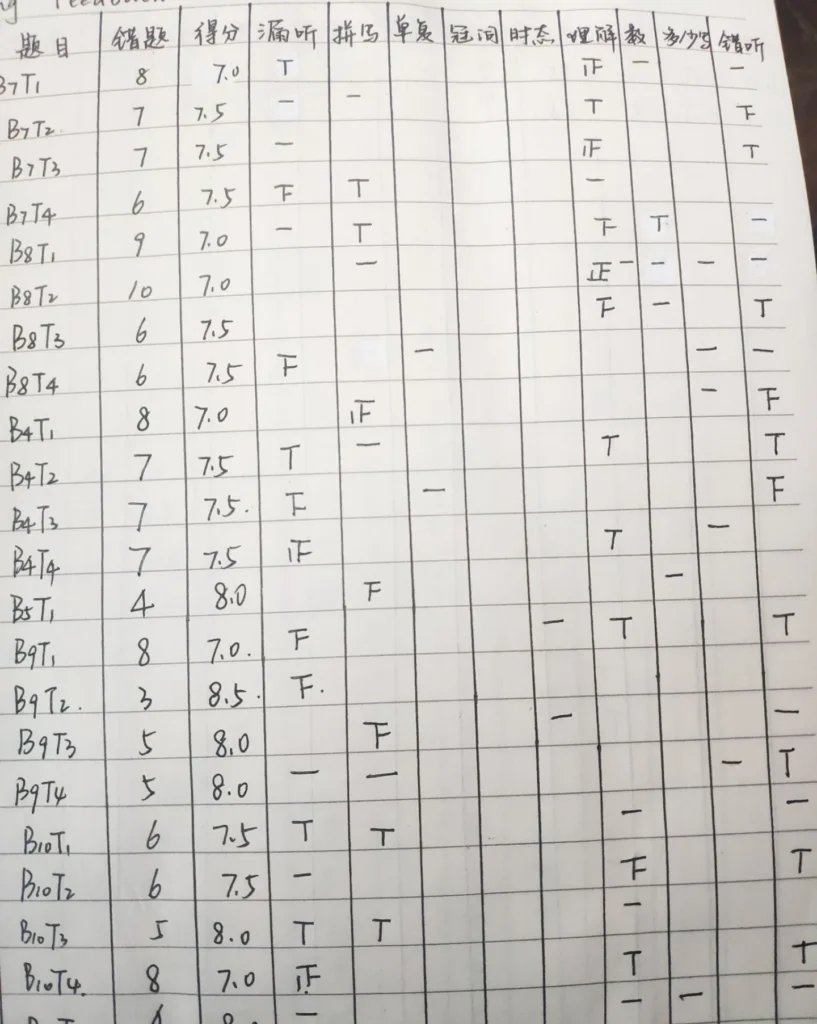
2. Listening Corpus
Listen to a section every day and write down the words she reads quickly, just like taking dictation.
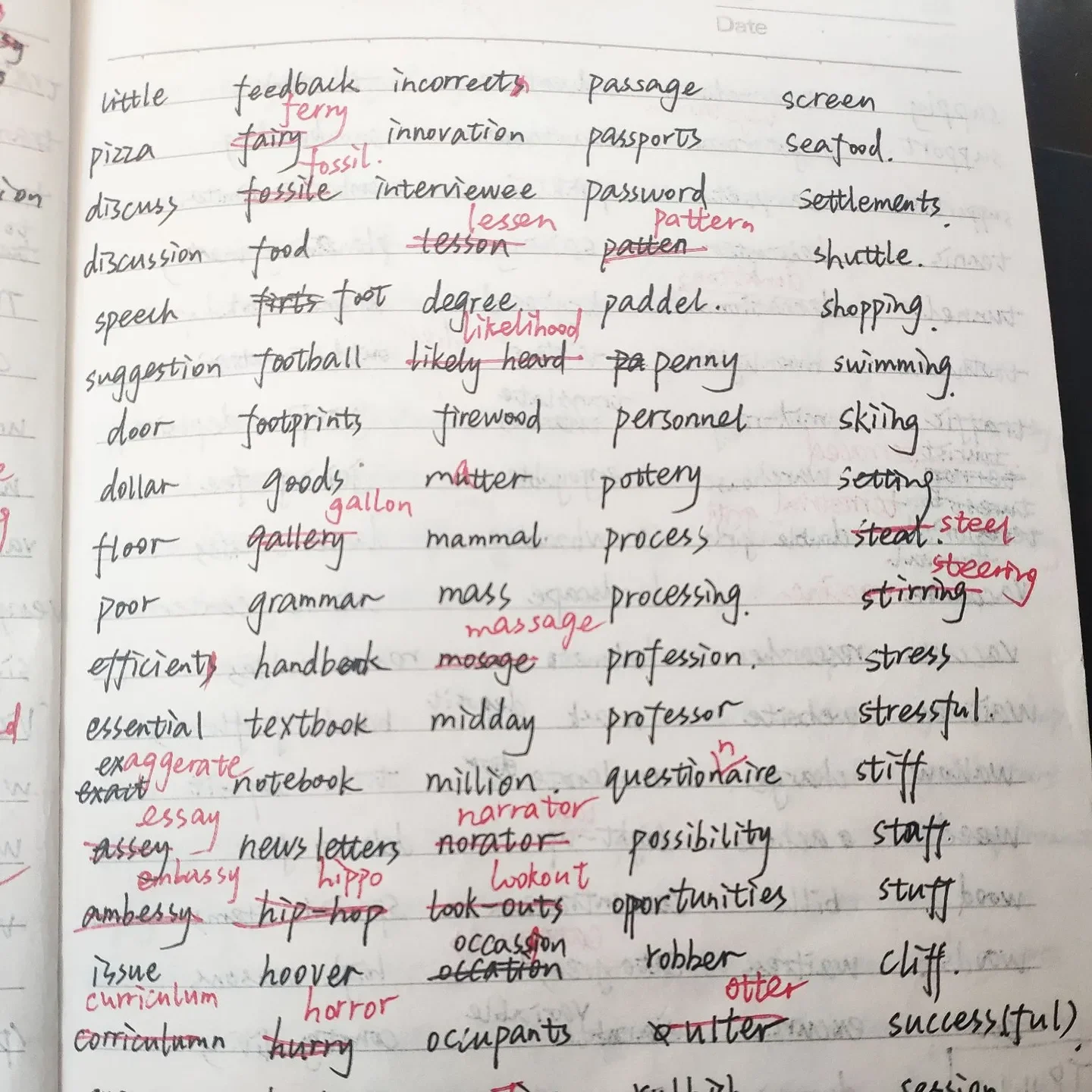
You need to memorize the wrong words, write down their Chinese meanings in a notebook, and test yourself on them the next day.
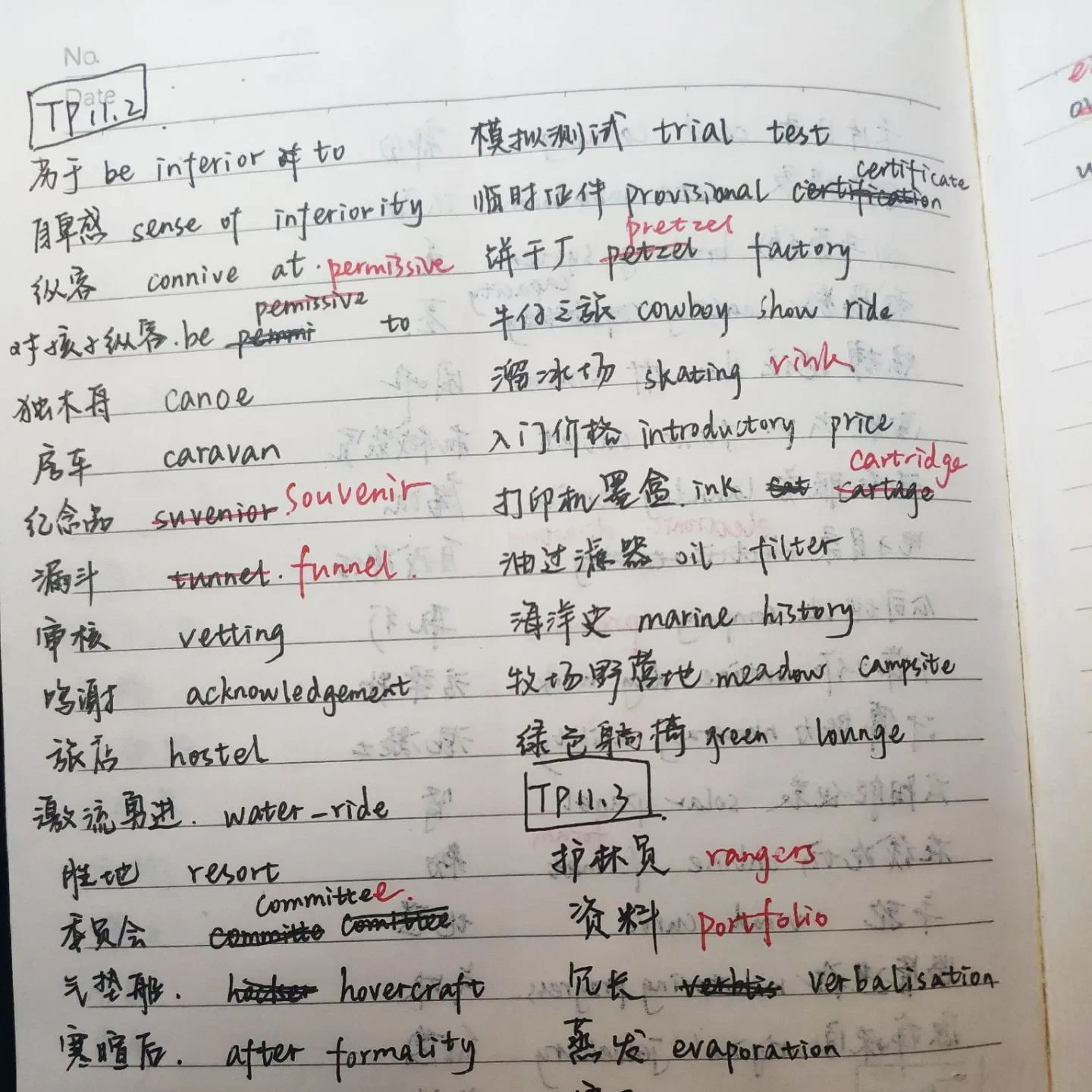
If you make a mistake again, just dictate again, and repeat it over and over again.
I didn't memorize any extra words. I memorized them when listening to the corpus.
2. Reading
My reading skills are pretty good, after all, I got them through the college entrance examination.
So the only way is to review a set of real questions every day.
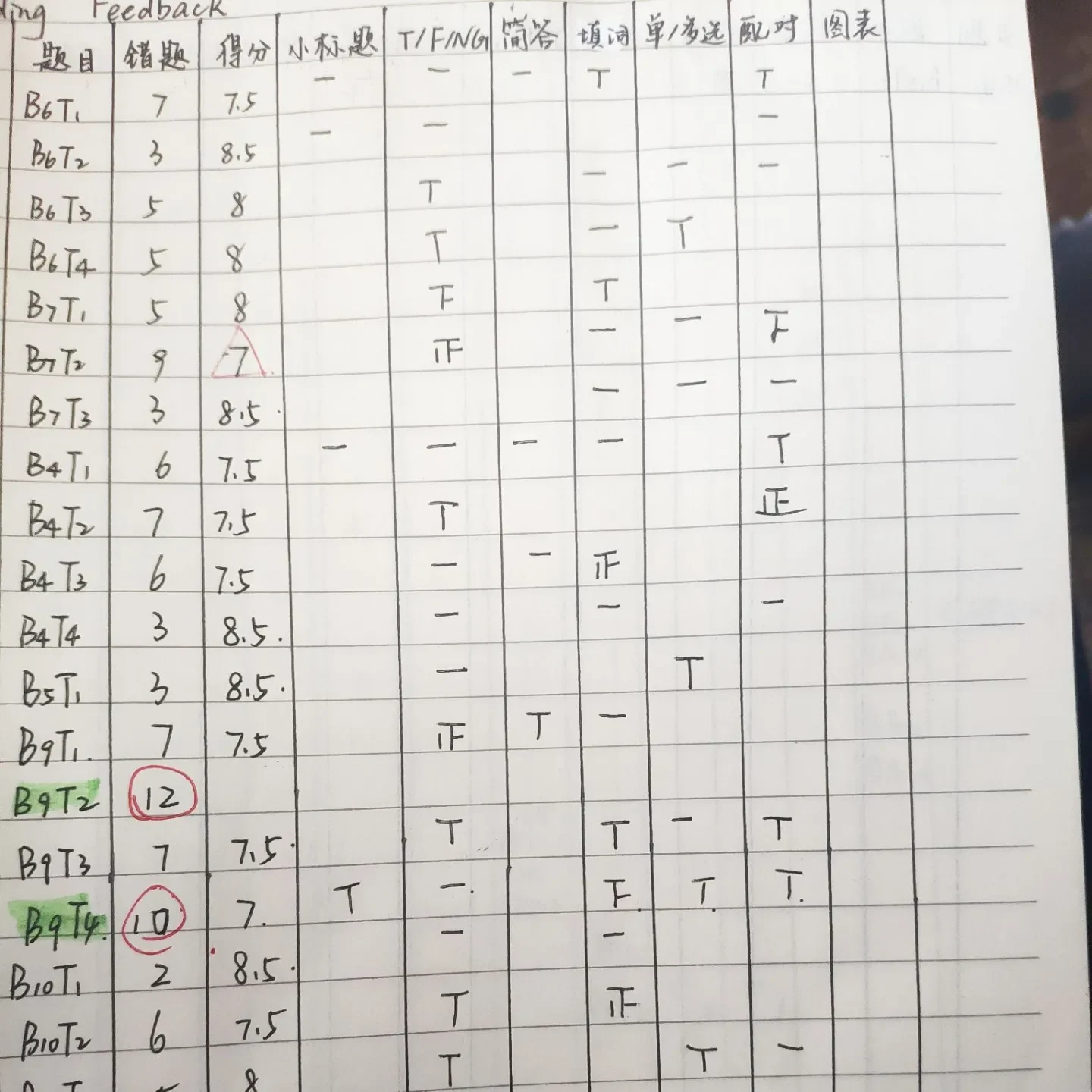
3. Writing
The essay is divided into opinion and report types. It is easy to think of how to write the structure when you see the topic. I think foreigners really value critical thinking, which means that your opinion should not be one-sided, but should be considered comprehensively, and the conclusion should be qualified with "although" or something like that.
In the first half of the month, I practiced translating Chinese sentences from model essays and then corrected them.
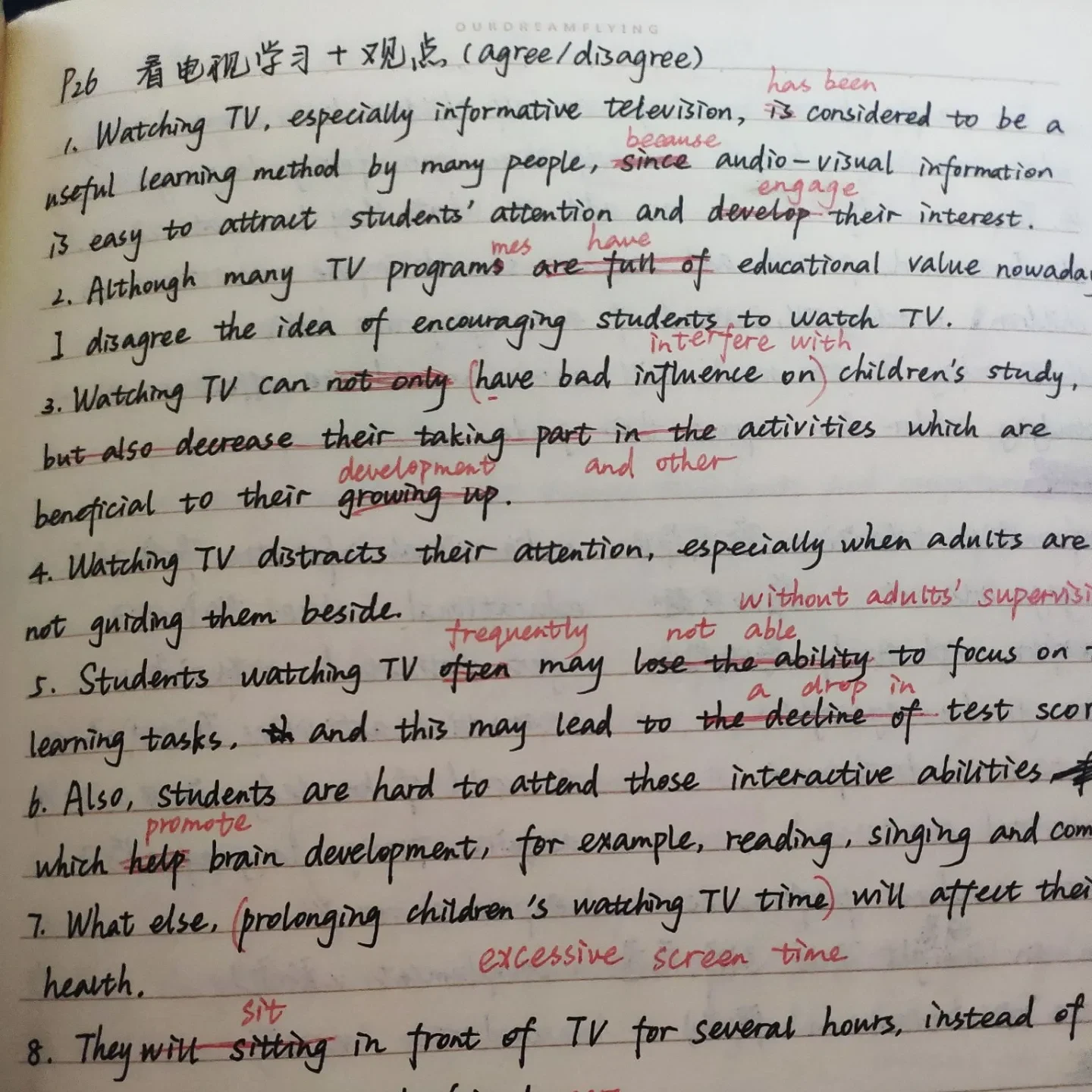
Don’t just mark it and call it a day! Make sure to memorize advanced vocabulary or fixed collocations and sentence patterns!
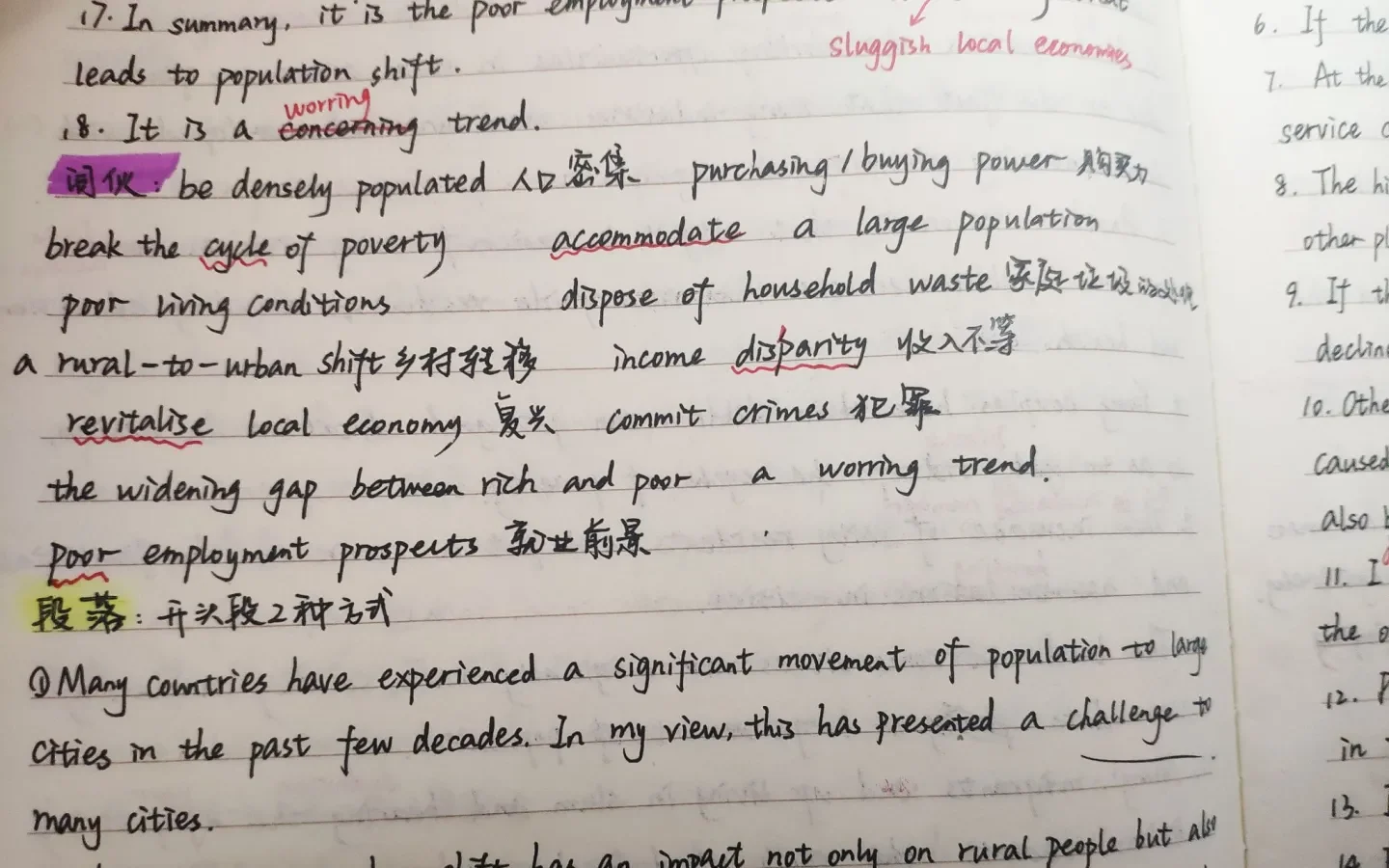
After half a month, stop translating the Chinese sentences he has written and start writing them yourself.
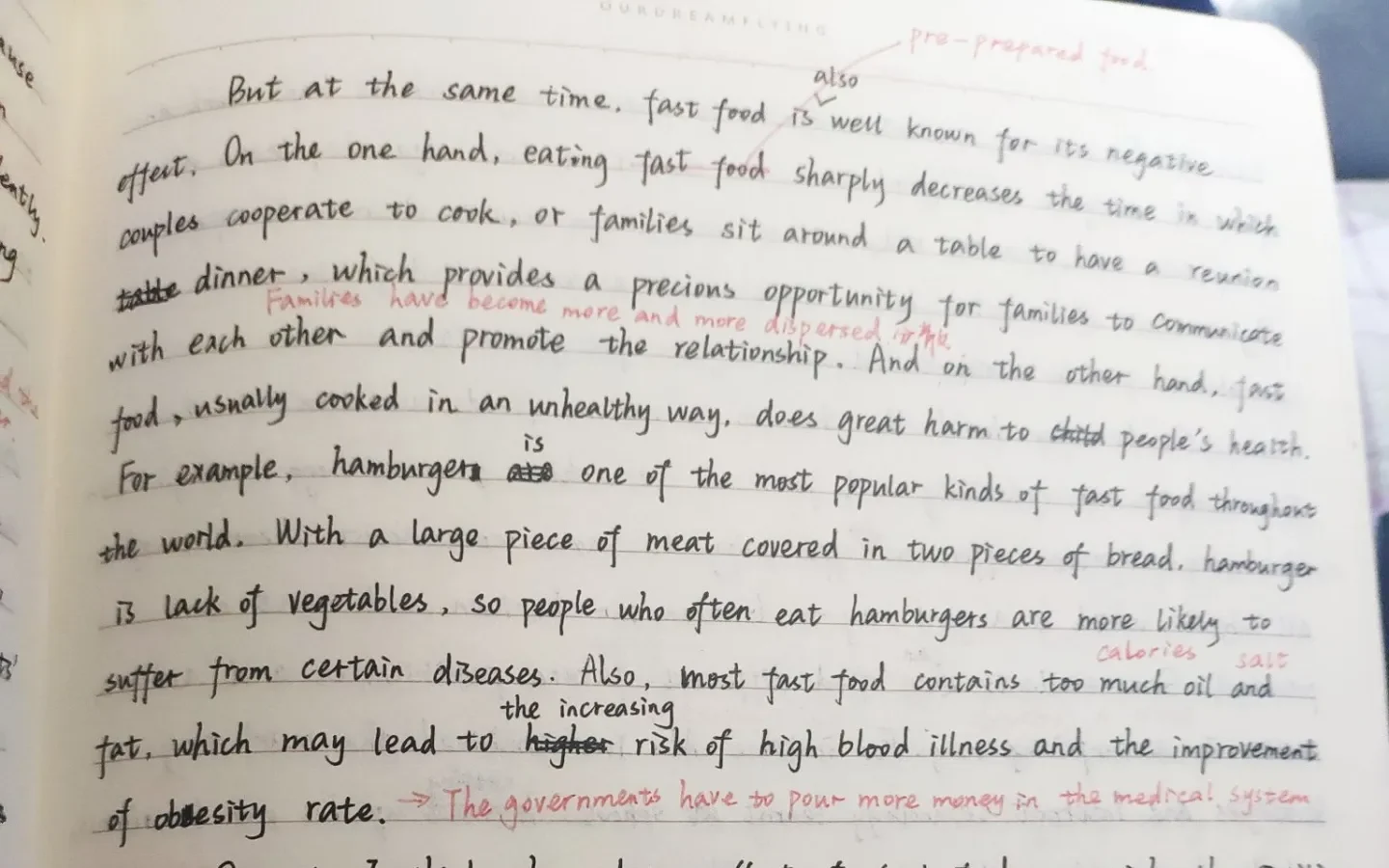
After writing, check it twice to see if there are any grammatical errors, and then compare it with the sample essay to see if there are any good ideas that you didn't think of, or accumulate some good words and sentences.
The same goes for short essays. Don't just read, but practice writing more. Accumulate some commonly used sentences for each type. I was slow in writing the essay during the exam, and only had 13 minutes left for the short essay. I didn't have time to think about the structure and syntax, so I just wrote whatever sentences came to mind... This is when the importance of practice makes perfect is reflected QAQ
I practiced all the essays before the exam, which was very effective.
4. Speaking
My spoken English was really bad! We didn’t pay much attention to spoken English. I never had a foreign teacher when I was young. After entering university, I was very inferior in English class…
The most important thing is not to take chances, and practice every question in every part. I was tested on a very unpopular part 2. In the first month, I practiced for about 1-2 hours every day, and in the second month, I basically spent half a day in the corridor of the teaching building practicing over and over again (I didn’t have many classes in my junior year when I was preparing for the exam).
There is another APP I would like to recommend, called Liulishuo-IELTS, with a red icon, which can provide AI intelligent scoring (no need to pay)
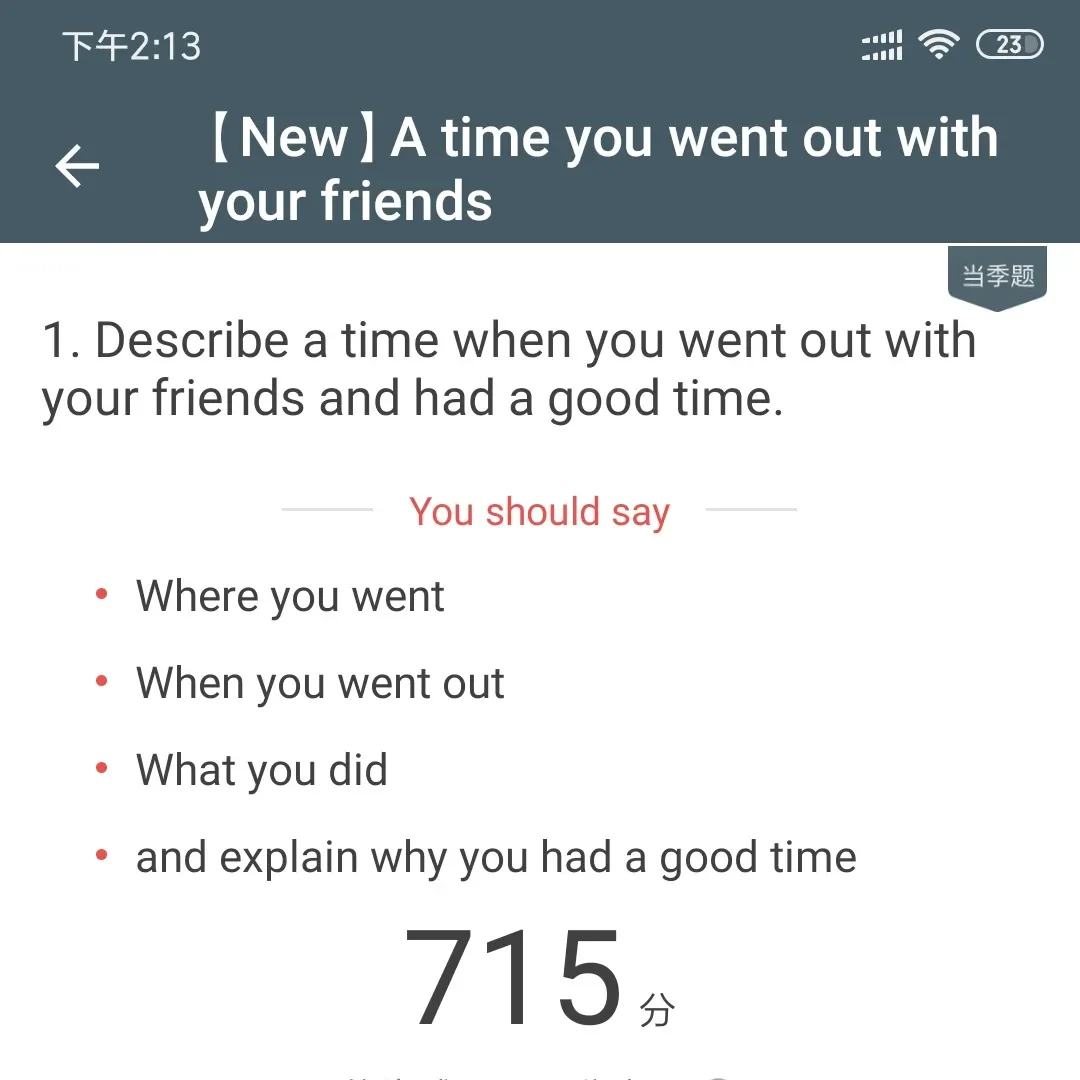
It may not be that accurate (Part 1 is very inaccurate, Part 2-3 is okay), but you can basically judge where your words are not good enough in this paragraph and need improvement.
The IELTS Full Score APP can also be used in conjunction with it. There are also free IELTS ability assessments and full-scale simulated computer-based exams. Students who want to understand their initial level can use it~

For those who are not good at arranging a review plan, you can also go to Elitestep.org Find an experienced teacher to help you make plans, take mock exams, and provide post-exam diagnosis and tutoring for all four subjects.It smells really good, don’t miss it!
From entry-level to advanced, a brand new upgrade! Exam preparation plan, strategies for each subject, computer-based exam simulations, and authentic materials!
This is the general experience!! It is not that difficult, as long as you make up your mind and prepare hard!!!
If you have any questions, please leave them in the comments! ♡
Frequently asked questions:
Q: How long did it take you to create this?
A: I concentrated on studying for IELTS in October and November. On average, I spent more than half a day studying English five days a week.
Q: How is the daily review arranged?
A: Every day I would do a set of listening, reading and writing test papers. I set a time limit for each of the three items. It took me about three and a half hours to finish and correct them all. Practice with test papers helps to develop a feel for it. I always exceeded the time limit when I first started doing reading, but I could basically leave 15 minutes at the end. The rest of the time I spent on oral battles. In the first month, I set myself the task of practicing at least three topics from Part 2 and Part 3 every day. In the second month, I repeatedly consolidated my knowledge.
Finally, I wish you all good luck in the exam and get the scores you want! ! ❤️ I will share a more detailed writing part when I have some free time~
Q: How many words do you memorize every day? Do you need to look up every word in the reading?
A: To be honest, the part I hate most about learning English is memorizing words... When I first started preparing for the IELTS, I downloaded an app for memorizing words, but I didn’t stick with it and gave up...
If you are only taking the IELTS and your vocabulary is good, I think you can accumulate words and phrases in listening (the corpus mentioned above), reading (real questions) and writing training. This way, the words you choose to memorize are more targeted and practical, and the total number of words is enough. Of course, friends who don’t have enough vocabulary should not be lazy! ! You can buy a vocabulary book and memorize it according to the vocabulary every day~
The following is the little notebook I use to accumulate vocabulary. This page is the first page I use to accumulate vocabulary for my reading practice test.
There is no need to check all the unfamiliar words in the reading, it is a waste of time, and many proper nouns may not be encountered again in the future. What you need to check are: key words that affect your judgment when answering questions (such as adjectives with positive or negative meanings in the question stem) and very common words that you have some impression of but have forgotten. What you need to accumulate are: phrases that you think are quite advanced and can be used in essays. For me, there are about four or five in an article. Circle them when reading the article and answering questions, and check them after finishing the questions and correcting them. Don't affect the rhythm of answering questions~
If you are in a hurry to get your score or have little time to prepare for the exam, you can also use the Kaomanfen Vocabulary APP, which contains a vocabulary book arranged by core high-frequency words. The core words range from 700 to 3000, and you can memorize them in a step-by-step manner, which basically covers most of the high-frequency words that need to be mastered.
But if you plan to take GRE or GMAT after IELTS, you must memorize the words as early as possible, and memorize more!!! (Lessons learned through blood and tears)
Finally, I would like to add that the IELTS is not too difficult compared to GRE, GMAT, etc., but it is undeniable that it also tests certain test-taking skills.The right way to prepare for the exam, often with half the effort and twice the results, and may gain little. So when you are just starting to prepare for the IELTS, I highly recommend going toStandard IELTS course admissionLearn some introductory knowledge and skills in various subjects, and spend some time to lay a solid foundationCorrect exam preparation concept, avoiding some unnecessary detours, the efficiency of exam preparation will be greatly improved.